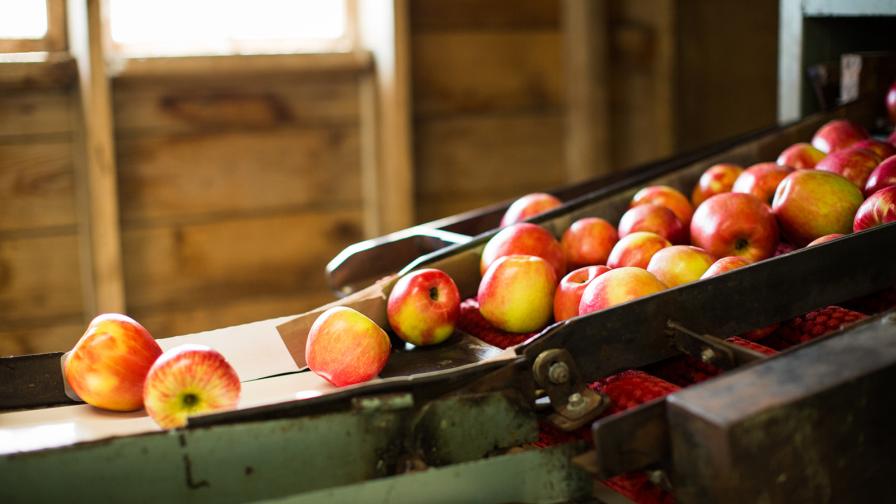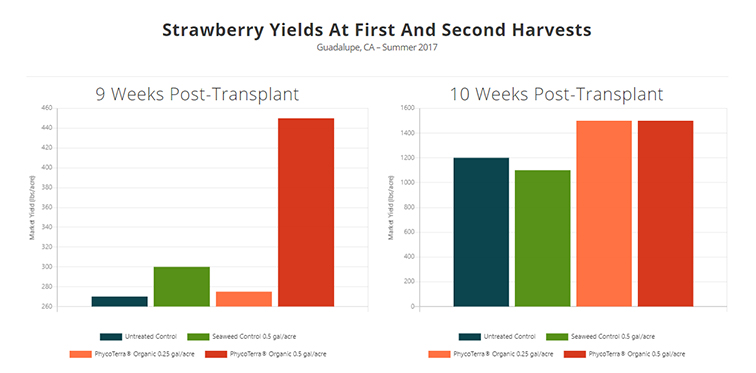Growth Out of the Pandemic: Bellewood Farms Pivots for Pome Fruit

Smaller ‘Honeycrisp’ apples at Bellewood Farms are sold to area school districts to provide delicious, nutritious, and cost-effective lunch options for Whatcom County, WA students, because they don’t require slicing.
Photo courtesy of Bellewood Farms
According to Blake Abel, Vice President and the overseer of farm operations for Bellewood Farms, diversity is an important key to success. The farm’s relationship with local school districts illustrates how the ability to seek out and fill the specific needs of a potential customer base can provide important stability in times of stress like those seen over the past two years of the pandemic.
Bellewood Farms is an orchard operation located in Northwest Washington State’s Whatcom County, an hour north of the Seattle Metropolitan Area and a dozen or so miles south of the U.S.-Canada border. The business operates around a core resource consisting of 31 acres of high-density orchard and is home to approximately 25,000 trees featuring 21 different varieties of apples and three varieties of pears.
Purchased in 2018 by the Abel family, today Bellewood engages in a broad spectrum of activities designed to fully optimize every piece of fruit grown each year to its fullest potential. The farm markets to traditional wholesale outlets, wholesales directly to regional upscale supermarkets dedicated to buying and selling local, and provides fresh apples to a number of local school district lunch programs.
The wholesale end of the business is complemented by a full-on agritourism operation including, according to Abel, “a U-pick apple orchard, pumpkin patch, corn maze, cafe, retail store, and award-winning distillery. We are pleased to feed and nourish our community and have a space that cultivates connection and meaningful relationships.”
TARGETING SCHOOLS
The third “wholesale” outlet, providing lunch box-sized apples to local school districts, has gained considerable importance for Bellewood Farms in recent times. To date, Bellewood supplies apples for the school lunch programs of six local school districts.
“The school lunch program is an example of the importance of determining what a customer needs and then addressing that need,” Abel says.
According to Abel, the opportunity to work with local school districts came because, “Whatcom County districts wanted to serve fresh, juicy apples to children, but the cost was prohibitive. Not so much because of the cost of the apples, but rather, the costs associated with time and labor needed to slice and dice apples into portions appropriate for children.”
The solution?
“We offer the districts high quality, but small, single serving-sized apples needing no preparation,” Abel says. “We fill a need, save the districts money, and both the kids and Bellewood benefit.”
The school lunch program fits perfectly into a niche between the requirements of Bellewood’s grocery customers and other, less-attractive markets for smaller but still high-quality apples, Abel says.
“We’ve found it to be one of the best ways to market smaller, A-grade apples that would otherwise be turned into juice or sent to the distillery,” he says. “Large wholesale and grocery customers are looking for consistency in apple sizes and typically don’t want any product smaller than a 72-88 count.”
Bellewood also benefits, Abel points out, in that the school lunch programs are not variety specific.
MULTIPLE VARIETIES
“The varieties packed for the school lunch program depend on availability and time of year,” he says. “A few Bellewood varieties such as ‘Gala’, ‘Orin’, and ‘Schoolhouse’ are naturally significantly smaller in size and great for the program due to the volume of the smaller apples. Depending on the time of year, the school lunch program will have ‘Honeycrisp’ as well.”
Abel says Bellewood Farms, at the peak of its relationship with the school districts, served seven school districts. While the pandemic has impacted the farm’s work with the districts, the farm still maintains its relationship with six of those seven. “With the pandemic,” he says, “participation in some districts has been inconsistent.”
However, Abel says the districts have continued to provide school lunches even while the children attend school remotely. “The pandemic has impacted case quantities more than anything. We still contribute to the lunch pick-ups and, in some districts, we have had to pivot to address location changes and other changing requirements. But our relationship with the districts has stayed really strong, and we are just happy to be part of feeding these kids something local and healthy.”
The pandemic has also demonstrated the value of a diversity of options for an operation like Bellewood. Apples not sold through other market channels are the basis for the company’s distillery products, which are used for making a line of spirits including brandy, vodka, and gin. Bellewood’s gin and brandy recently won gold and silver respectively in Sip Magazine’s “Best of the Northwest competition.”










